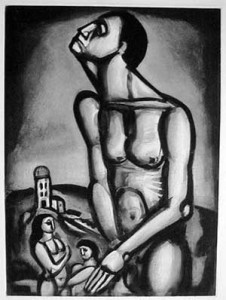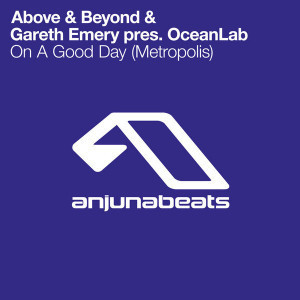Tullian Tchividjian's Blog, page 3
August 13, 2014
The Comfort Of Who
 Nicholas Wolterstorff is a Christian who taught philosophical theology for many years at Yale. He and his wife have six children, but he lost an adult son. His son Eric, who was twenty-five at the time, died in a mountain climbing accident. Wolterstorff chronicled the grief he experienced through his loss in a journal. This is a man who had devoted his life to the understanding, meaning, and reality of life’s mysteries, and he suddenly, strikingly, lost a son. In a single moment, all his intellectual categories for making sense of the existence of evil and pain were demolished. He published his journal years later as a book entitled Lament for a Son. The book opens with his recollection of the moment the dreaded phone call came:
Nicholas Wolterstorff is a Christian who taught philosophical theology for many years at Yale. He and his wife have six children, but he lost an adult son. His son Eric, who was twenty-five at the time, died in a mountain climbing accident. Wolterstorff chronicled the grief he experienced through his loss in a journal. This is a man who had devoted his life to the understanding, meaning, and reality of life’s mysteries, and he suddenly, strikingly, lost a son. In a single moment, all his intellectual categories for making sense of the existence of evil and pain were demolished. He published his journal years later as a book entitled Lament for a Son. The book opens with his recollection of the moment the dreaded phone call came:
The call came at 3:30 on that Sunday afternoon, a bright sunny day. We had just sent his younger brother off to the plane to be with him for the summer .The phone rings, “Hello.”
“Mr. Wolterstorff?”
“Yes.”
“Is this Eric’s father?”
“Yes.”
“Mr. Wolterstorff, I must give you some bad news.”
“Yes.”
“Eric has been climbing in the mountains and has had an accident.”
“Yes.”
“Eric has had a serious accident.”
“Yes, go on.”
“Mr. Wolterstorff, I must tell you, Eric is dead. Mr. Wolterstorff, are you there? You must come at once! Mr. Wolterstorff, Eric is dead.”
For three seconds I felt the peace of resignation; arms extended, limp son in hand, peacefully offering him to someone—Someone. Then the pain—cold, burning pain.
Wolterstorff’s harrowing account explodes the tempting notion that if we only grasped God’s will more clearly, if we only knew something we don’t know now, the wound would hurt less. But the Gospel is not ultimately a defense from pain and suffering, rather it is the message of God’s rescue through pain. In fact, it allows us to drop our defenses, to escape not from pain but from the prison of How and Why, to the freedom of Who. The answer to our pain isn’t finally found in a syllogism but in a Savior—a suffering Savior.
We are not responsible for finding the right formula to combat or unlock our suffering. The good news of the Gospel does not consist of theological assertions or some elaborate religious how-to manual. The good news is Jesus Himself, the Man of Sorrows, the crucified God who meets us in our grief.
August 11, 2014
Monday Morning Music
This newer track, “Don’t Leave”, by Seven Lions (feat. Ellie Goulding) is full of feeling and longing. Enjoy…
“Don’t leave…
I need you…”
August 6, 2014
Grace And Identity
 A few years back I was driving one of my sons home from his basketball game and he was crying. He’s a great basketball player but had a less than stellar performance and he was, as a result, crushed. After doing my best to comfort him by listening to him and reminding him that his game was not nearly as bad as he thought it was and that even the best basketball players in the world have an off game here and there, I asked him why he was so upset. He told me plainly, “Dad, I played terrible.” I said, “I know you don’t think you played well but why does not playing well make you so sad.” He said (with tremendously keen self-awareness), “Because I’m a basketball player. That’s who I am.” Somewhere along the way he had concluded (due to success on the basketball court over the years) that his self-worth and value as a person was inextricably tied to his achievements as a basketball player. If he was a good basketball player, then he mattered. If he wasn’t, he didn’t. So a bad game was more than a bad game. It was a direct assault on his identity. I realized in the moment that any attempt to assure him that he was a great basketball player wasn’t going to help him because basketball wasn’t the issue–identity was. He was suffering an identity crisis, not a basketball crisis. A basketball crisis is easy to solve–a little more practice and a lot of encouragement typically does the trick. But an identity crisis is deep. It’s an under the surface problem requiring an under the surface solution.
A few years back I was driving one of my sons home from his basketball game and he was crying. He’s a great basketball player but had a less than stellar performance and he was, as a result, crushed. After doing my best to comfort him by listening to him and reminding him that his game was not nearly as bad as he thought it was and that even the best basketball players in the world have an off game here and there, I asked him why he was so upset. He told me plainly, “Dad, I played terrible.” I said, “I know you don’t think you played well but why does not playing well make you so sad.” He said (with tremendously keen self-awareness), “Because I’m a basketball player. That’s who I am.” Somewhere along the way he had concluded (due to success on the basketball court over the years) that his self-worth and value as a person was inextricably tied to his achievements as a basketball player. If he was a good basketball player, then he mattered. If he wasn’t, he didn’t. So a bad game was more than a bad game. It was a direct assault on his identity. I realized in the moment that any attempt to assure him that he was a great basketball player wasn’t going to help him because basketball wasn’t the issue–identity was. He was suffering an identity crisis, not a basketball crisis. A basketball crisis is easy to solve–a little more practice and a lot of encouragement typically does the trick. But an identity crisis is deep. It’s an under the surface problem requiring an under the surface solution.
When most of us stop long enough to consider what establishes our identity, what really makes us who we are, many of us naturally assume the answer is “our performance.” This is precisely what my son was facing.
I reminded him of the gospel. I showed him how the gospel frees us from this obsessive pressure to perform, this slavish demand to “become.” I showed him how the gospel liberatingly declares that in Christ “we already are.” While the world, the flesh, and the Devil constantly tempt us to locate our identity in something or someone smaller than Jesus, the gospel liberates us by revealing that our true identity is locked in Christ. Our connection in and with Christ is the truest definition of who we are.
I told him that since he was a Christian, who he really was had nothing to do with him—how much he can accomplish, who he can become, his strengths, his weaknesses, his athletic ability, what people thought of him, and so on. I reminded him that his identity is firmly anchored in Christ’s accomplishment, not his; Christ’s performance, not his; Christ’s victory, not his. So much of parenting, I’ve discovered, involves reminding. Simply reminding our children of who they are in Christ, what they already possess in Christ and how nothing–nothing–that Christ has secured for them can ever be taken away.
After listening to this, he stopped crying and from the back seat said, “Dad, why can’t you preach this way all the time. This makes sense.” Feeling like a failure as a preacher in that moment, I realized that none of us ever outgrow our need for robust reminders of the gospel.
August 4, 2014
Monday Morning Music
I love this new remix of Klingande’s track “Jubel.” Happy Monday!
“It’s like I’ve seen
the light but you
have never known….”
August 1, 2014
The Gospel For Those Broken By The Church
Take some time this weekend and listen to this lecture by my dear friend, Rod Rosenbladt: “The Gospel for Those Broken by the Church.”
July 29, 2014
The Hopelessness Of Scorecards
 In a 2011 interview with Stephen Colbert, reggae legend Jimmy Cliff was asked if he was currently a member of a religion. He answered, “No, I’ve graduated from them.” Colbert asked, incredulously, “You’ve graduated from religion?” and Cliff said, “Yes.” Colbert then said that God is sitting up in heaven when we graduate from this life with a scorecard, and asked Cliff which scorecard (Christian, Muslim, Jew, etc) he wanted to be graded on. Cliff said he would like to be graded on the scorecard of “truth and facts.” Colbert’s inspired response? “I’ll take faith and grace.”
In a 2011 interview with Stephen Colbert, reggae legend Jimmy Cliff was asked if he was currently a member of a religion. He answered, “No, I’ve graduated from them.” Colbert asked, incredulously, “You’ve graduated from religion?” and Cliff said, “Yes.” Colbert then said that God is sitting up in heaven when we graduate from this life with a scorecard, and asked Cliff which scorecard (Christian, Muslim, Jew, etc) he wanted to be graded on. Cliff said he would like to be graded on the scorecard of “truth and facts.” Colbert’s inspired response? “I’ll take faith and grace.”
This interview brings to mind Jesus’ words: “Take my yoke upon you and learn from me, for I am gentle and humble in heart, and you will find rest for your souls. For my yoke is easy, and my burden is light.”
Jimmy Cliff has decided to “graduate” from religion and wants to be assessed on truth and facts. Well, what are the facts? What is the truth? When the requirements are things like, “Honor your father and mother” and “Love your neighbor as yourself” and “Love the Lord your God with all your heart, soul, mind, and strength,” the truth seems to be that we’re not doing so well. The facts are that we’re coming up a little short. Or a lot short.
To be judged on the scorecard of truth and facts is a hard yoke and a heavy burden. Jesus must, then, be talking about something else. And thankfully he is. Truth and facts lead to a heavy burden because it involves a righteousness earned. Jesus says his yoke is easy and his burden is light because he’s talking about a righteousness given. He’s talking about faith and grace. Truth and facts mean we’re judged on our own merits, or lack thereof. Faith and grace mean that we’re judged on Jesus’ merits, and judged righteous.
May we always rely on a righteousness that is given and never fear a righteousness that is required. And may we never ever “graduate” from a yoke that is easy and a burden that is light.
July 23, 2014
The Liberating Impossibility Of Repayment
 On an episode of the second season of The Big Bang Theory, Sheldon (Jim Parsons) discovers that Penny (Kaley Cuoco) has gotten him a Christmas present. Angered, he reminds Penny that the “foundation of gift giving is reciprocity,” and that she hasn’t given him a gift, she’s given him “an obligation.” He says that he now has to go out and purchase for her “a gift of commensurate value and representing the same perceived level of friendship” as that represented by the gift she’s given him.
On an episode of the second season of The Big Bang Theory, Sheldon (Jim Parsons) discovers that Penny (Kaley Cuoco) has gotten him a Christmas present. Angered, he reminds Penny that the “foundation of gift giving is reciprocity,” and that she hasn’t given him a gift, she’s given him “an obligation.” He says that he now has to go out and purchase for her “a gift of commensurate value and representing the same perceived level of friendship” as that represented by the gift she’s given him.
His solution is to buy three gift baskets (of various sizes) of bath products. His plan is to see what her gift to him is, excuse himself from the room, give her the appropriate gift basket and return the other two baskets to the store. What happens, though, is that Penny has gotten Sheldon a napkin that Leonard Nimoy has used and autographed. Sheldon notes that he now not only has Nimoy’s signature, he has his DNA.
After excusing himself, Sheldon returns with all three gift baskets…barely able to carry the weight. “I know, I know…” he wails. “It’s not enough!”
And that’s the problem, isn’t it? We don’t know how to react when we get really good gifts. When the gift is that good, no response is good enough. Certainly a plain “thank you” won’t cut it. There is no bath product cornucopia that can balance the scales when Leonard Nimoy’s DNA is on the other side, and there doesn’t seem to be an adequate response when Jesus’ death for our sins holds that place, either.
Many of us Christians spend our lives trying to “reciprocate” for Jesus’ gift–to adequately say “thank you.” But if we turn a big enough gift into an obligation, we are crushed by it.
Let’s acknowledge from the beginning, then, that this is a gift that tips the scales forever. Let’s treat the gift like a child would, with excitement and joy, and go play, remembering that even our most heart-felt gratitude (which is a good thing!) is not commensurate with his life-giving gift–liberating us from the impossible burden of “repayment.”
July 21, 2014
Monday Morning Music
Sometimes God will use unexpected things to remind us that “all is well.” I can’t really put my finger on it but there’s something about this wordless track from Deadmau5, Pets, that has ushered in that reminder to me this morning…
July 18, 2014
Weary Soldiers…Take Heart
 With Christ’s first coming, God began the process of reversing the curse of sin and redeeming all things. In Christ, God was moving in a new way. All of Jesus’ ministry—the words he spoke, the miracles he performed—showed that there was a new order in town: God’s order. When Jesus healed the diseased, raised the dead, and forgave the desperate, he did so to show that with the arrival of God in the flesh came the restoration of the way God intended things to be.
With Christ’s first coming, God began the process of reversing the curse of sin and redeeming all things. In Christ, God was moving in a new way. All of Jesus’ ministry—the words he spoke, the miracles he performed—showed that there was a new order in town: God’s order. When Jesus healed the diseased, raised the dead, and forgave the desperate, he did so to show that with the arrival of God in the flesh came the restoration of the way God intended things to be.
Tim Keller observes that Christ’s miracles were not the suspension of the natural order but the restoration of the natural order. They were a reminder of what once was prior to the fall and a preview of what will eventually be a universal reality once again—a world of peace and justice, without death, disease, or conflict.
The resurrection of Jesus is the greatest proof of God’s intention to revitalize this broken cosmos. His rising from the dead was “just the beginning of the saving, renewing, resurrecting work of God that will have its climax in the restoration of the entire cosmos,” as K. Scott Oliphant and Sinclair Ferguson remind us. The bodily resurrection of Jesus “was the first bit of material order to be redeemed and transfigured,” writes John Stott. “It is the divine pledge that the rest will be redeemed and transfigured one day.” Christ’s resurrection is both the model and the means for our resurrection—and the guarantee that what he started, he will finish.
The day will come when Christ returns and completes this process of transformation (read Revelation 21). Psalm 96 gives us a poetic glimpse of what will happen when Jesus returns to rule the earth.
It is good news to the weary and heavy laden that there will one day be no more sickness, no more death, no more tears, no more division, no more tension. For the pardoned children of God, there’ll be complete harmony. We’ll work and worship in a perfectly renewed earth without the interference of sin. We who believe the gospel will enjoy sinless hearts and minds along with disease-free bodies. All that causes us pain and discomfort will be destroyed, and we will live forever.
So take heart, weary soldiers. The best is yet to come.
July 16, 2014
Jesus Is For Losers
 Often, when a sports team is losing and the game is almost over, fans will start to head for the exits. Sometimes they want to beat the traffic home, but often, they’re just disgusted with the way the game is going and can’t watch any more. It’s interesting to note the human movement: when the team seems sure to lose, the people move away, literally leaving the arena. If a miracle happens, and the team looks like it might win, they come streaming back.
Often, when a sports team is losing and the game is almost over, fans will start to head for the exits. Sometimes they want to beat the traffic home, but often, they’re just disgusted with the way the game is going and can’t watch any more. It’s interesting to note the human movement: when the team seems sure to lose, the people move away, literally leaving the arena. If a miracle happens, and the team looks like it might win, they come streaming back.
This is what we do. We are desperate to associate with winners, and terrified that we’ll be associated with losers. This is true in high school cafeterias, high powered board rooms, NBA arenas, and even in church pews. We want winners around us, and we shield ourselves (always politely, of course!) from losers.
Jesus moves the other way.
Our Savior would be found coming into the arena as the clock was ticking to zero on the home team’s failure. Jesus showed over and over again that his life’s work was to associate with losers. The most common insult sent Christ’s way was “He has gone to be the guest of a sinner” (e.g. Luke 19:7). St. Paul knew the power of Christ’s habit: “You see, at just the right time, when we were still powerless, Christ died for the ungodly. Very rarely will anyone die for a righteous person, though for a good person someone might possibly dare to die. But God demonstrates his own love for us in this: While we were still sinners, Christ died for us” (Romans 5:6-8).
In common parlance: Jesus came for losers. People hardly ever give their all for anyone, but for a real winner, someone might give up something. God, though, shows his love in one special way: while we were losers, he sent his son for us. While we were at our worst, God gave us his best.
Jesus went repeatedly to the down-and-out, the leper, the demon-possessed, the sick, and even the dead. The movement of Jesus’ life, death, and resurrection is toward overwhelmed losers like you and me…radically different than what we expect, and radically better than what we deserve.
Tullian Tchividjian's Blog
- Tullian Tchividjian's profile
- 142 followers



